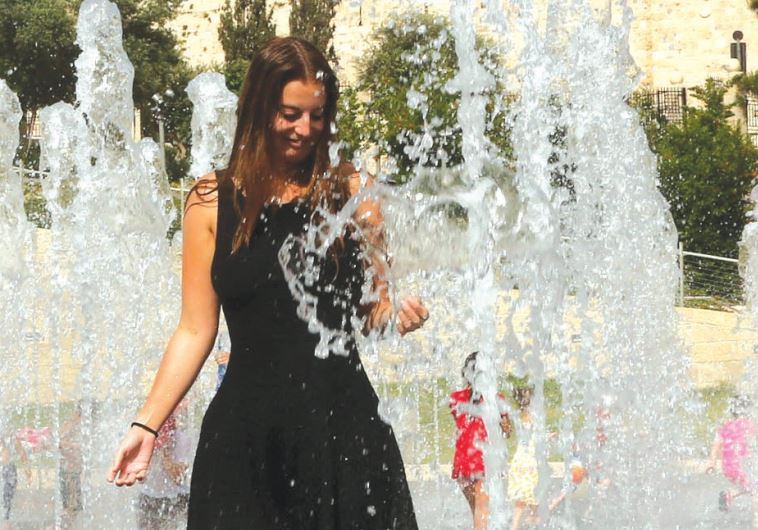Here and There: Happiness
"I feel a freedom, a sense of belonging, a deep involvement with all that happens here – something I did not feel when living in the Diaspora."
 A woman plays in a water fountain in Jerusalem(photo credit: ILLUSTRATIVE: MARC ISRAEL SELLEM)
A woman plays in a water fountain in Jerusalem(photo credit: ILLUSTRATIVE: MARC ISRAEL SELLEM)